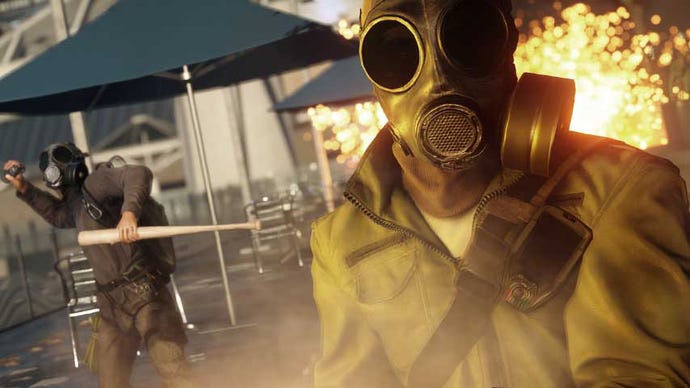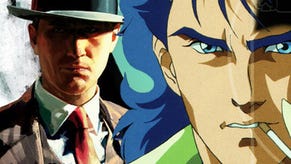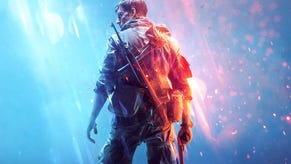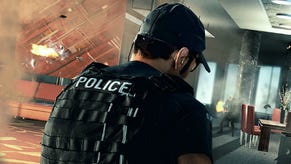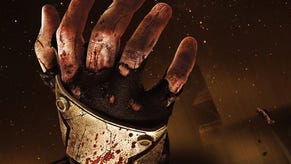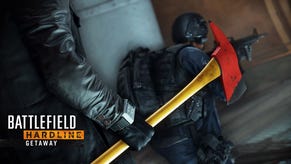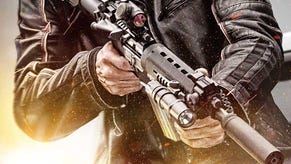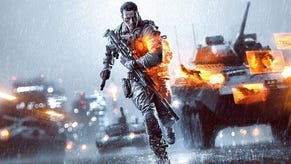Lethal Weapons: Battlefield Hardline and the buddy cop movie
Battlefield Hardline brings Visceral's flair for narrative to a franchise notorious for its lack of storytelling.
The Battlefield series has a heck of a lot going for it, recent disasters aside, but one thing nobody's ever said is "you know what? That new Battlefield has a great story, really well told."
It's so weird, then, that Visceral - a studio all about narrative-driven games - is making Battlefield Hardline. Weird and also awesome; one can only hope that DICE will learn as much from its stablemate as Visceral has from DICE in producing a rip-snorter multiplayer suite.
There are few triple-A, multiplayer shooters with a really good single-player story. This morning I dialled in to have a chat with creative director Ian Milham and co-writer Rob Auten about what it's like to try and write a compelling story for a genre generally dominated by explosions, bigger explosions and people going "WHOOOOOOOO! YEAH BABY" after explosions.
"Shooters are tough, because the primary activity in shooters is shooting," Auten said. "It's kind of hard to couple that with a realist attitude.
"I think particularly the problem is compounded when you throw in the realism and attention to detail that we wanted to bring to the police genre with this game.
"There were a lot of landmines, I guess. We tried to respect them by making our characters based in realism but still able to react in a somewhat hyperbolic way to sort of exaggerated situations. The kind of scenarios you'd find in buddy cop movies, like Danny Glover on the toilet in Lethal Weapon 2. Slightly bizarre situations.
"The characters react in accordance with the tone of the overall story. They don't always necessarily need to react with that overly-quipped delivery I think you find in a lot of military shooters."
Visceral and the writing team were given the opportunity to talk to consultants with both military and police backgrounds, and got some good advice and insight into making them sound more realistic.
"One of the things these guys say - especially the military guys - is that soldiers these days don't tend to talk like video game characters," Auten said.
"When people come into their units and talk like a character out of a video game, they sort of ice that guy out until they realise it's really not about being cool on the battlefield. It's about looking out for your companions. It's about safety, not swagger.
"We tried to make our characters based in realism but still able to react in a hyperbolic way to exaggerated situations. The kind of scenarios you'd find in buddy cop movies, like Danny Glover on the toilet in Lethal Weapon 2."
"One of the reasons [military shooters] get criticised is because they overdo this fantasy of making it cool to be a soldier. Certainly it is an honourable thing to be a solider. But we wanted to tell a story that didn't rely on this sort of perceived cool.
"[Bissell and I] feel we've been lucky to sidestep that a little bit. We love the Battlefield franchise, but it's really hard to avoid those tropes. And there's a lot of pressure from audience expectations, from an internal perspective, to reinforce those tropes - despite their not being all that accurate.
"This was a great opportunity for us to talk to actual cops. Actual cops are a lot of fun; a lot of them have really funny stories. If you call up a cop, a really experienced officer, and say 'What do you say when a guy is running away from you,' he'll say like 'I don't know, I say, hey asshole, stop.' There's no posturing about it. It feels like something that guy did a hundred times over the course of a 15 year career.
"It was nice to be able to service some level of realism while at the same time making sure everyone was playing in an environment that they knew was potentially for fun."
Next: Building characters, and putting choices in gameplay, not quick time events.
Although it wanted to avoid the clichés of linear shooters, Visceral ultimate elected to stick with a linear story.
"The Hardline story is a linear story. There's no going back in time. There's no press A to shoot and B to run out a window and stuff like that," Auten said.
"Given the amount of production time and the amount of fidelity we wanted to bring to the story - and to the graphics and sound and all aspects of the physical production - it just didn't make sense to create that kind of [non-linear] content, that not all our audience could see."
That said, players are allowed a sort of freedom. Gameplay regularly opens into what Auten described as "beautiful big combat bowls" with multiple solutions. Players decide minute by minute how they'll play the game.
"We wanted to have the gameplay function in such a way that the story made sense no matter whether you play as a good cop or sort of disobey what a cop should do - and the game recognises and reinforces that, or if you just wanna gun everybody down," he added.
"It still had to have a sort of arc. The decision making happens in how you play, and not necessarily what happens."
Building character
Big bombastic shooters used to be the last place you'd look for diversity and representation, but the big guns have been pushing back against convention in recent years, and Hardline is no exception.
Players take on the role of Nick Mendoza, a Cuban American trying to distance himself from "a certain unruly past".
"I think it is cool to be a detective. I think our player character Nick is a cool detective, and when you play as him, he's somebody that you're gonna wanna hang out with," Auten said.
"He enters the the Miami police and becomes a detective, and his key partner is Khai Dao, a Vietnamese American woman who grew up outside of LA and is trying to flee her own - more sort of legal background, but not without its own share of problems. She wanted to get as far away as she could where the weather was still decent, and that was Miami."
"Just watching these two characters interact with each other is exciting, because it's a formulation in terms of their backgrounds that I've never really seen in a video game before."
When I asked Milham and Auten what they were most proud of in Hardline in story terms, they said these characters - and more particularly the magic that happened when actors Nicholas Gonzalez and Kelly Hu brought them to life.
"Just watching these two characters interact with each other is exciting, because it's a formulation in terms of their backgrounds that I've never really seen in a video game before," Auten said.
"Bringing other actors in and watching them play off that, and watching the actors try to find their own sense of identity both as individuals and within each role was, uh - a lot of unexpected things happened. I was really excited.
"One of the things that is so difficult about game making is, there's so much information to get across that everything can come across sort of over done and dramatic and concerned," Milham added.
"We wanted our things to feel more naturalistic, like the way real people talk. So some of the more throwaway ensemble things where there were things that even the actors make up on set, little things they mutter under their breath, that really makes the team come alive and feel naturalistic.
"That kind of buddy cop, buddy criminal group dynamic ensemble vibe that you never really know if it's gonna work when it's just on paper - I think there's a few scenes there when the group gets together that start to really crackle with that organic energy. And that's what I'm most proud of."
"It was a real pleasure to see the level of fidelity these guys are working with," Auten continued. "Motion capture, facial capture, facial performance.
"The amount of humanity we're now able to push through the uncanny valley and put on these faces is startling."
Battlefield Hardline went gold overnight. It releases on PC, PlayStation 3, PS4, Xbox 360 and Xbox One on March 17 in North America and March 19 in Europe.
